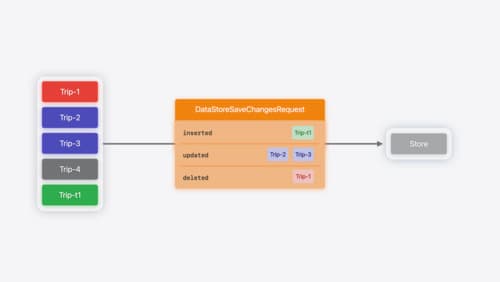what's new in swift data?
Asked on 2025-06-12
1 search
In the "What’s new in SwiftData" session at WWDC 2024, several new features and improvements were introduced for SwiftData. Here are the highlights:
-
Schema Macro: A new schema macro helps avoid duplicate models, making it easier to manage your data models efficiently.
-
Model Containers: There are new ways to set up and configure model containers, which are crucial for managing your app's data models.
-
Query Optimization: The session covered how to optimize queries with complex filters and introduced a new macro to improve performance.
-
Custom Data Stores: SwiftData now supports custom data stores, allowing you to use alternative backends like SQLite or a remote web service, providing flexibility in how data is stored and accessed.
-
Indexing and Unique Constraints: New features like indexing and unique constraints have been added to make queries more efficient and ensure data integrity.
-
History API: SwiftData now provides access to the history of changes in a datastore, which is useful for tracking local changes that need to be synced to a remote service.
For more detailed information, you can refer to the session What’s new in SwiftData (00:00:07).

What’s new in SwiftData
SwiftData makes it easy to add persistence to your app with its expressive, declarative API. Learn about refinements to SwiftData, including compound uniqueness constraints, faster queries with #Index, queries in Xcode previews, and rich predicate expressions. Join us to explore how you can use all of these features to express richer models and improve performance in your app. To discover how to build a custom data store or use the history API in SwiftData, watch “Create a custom data store with SwiftData” and “Track model changes with SwiftData history”.

SwiftData: Dive into inheritance and schema migration
Discover how to use class inheritance to model your data. Learn how to optimize queries and seamlessly migrate your app’s data to use inheritance. Explore subclassing for building model graphs, crafting efficient fetches and queries, and implementing robust schema migrations. Understand how to use Observable and persistent history for efficient change tracking.

Create a custom data store with SwiftData
Combine the power of SwiftData’s expressive, declarative modeling API with your own persistence backend. Learn how to build a custom data store and explore how to progressively add persistence features in your app. To get the most out of this session, watch “Meet SwiftData” and “Model your schema with SwiftData” from WWDC23.
